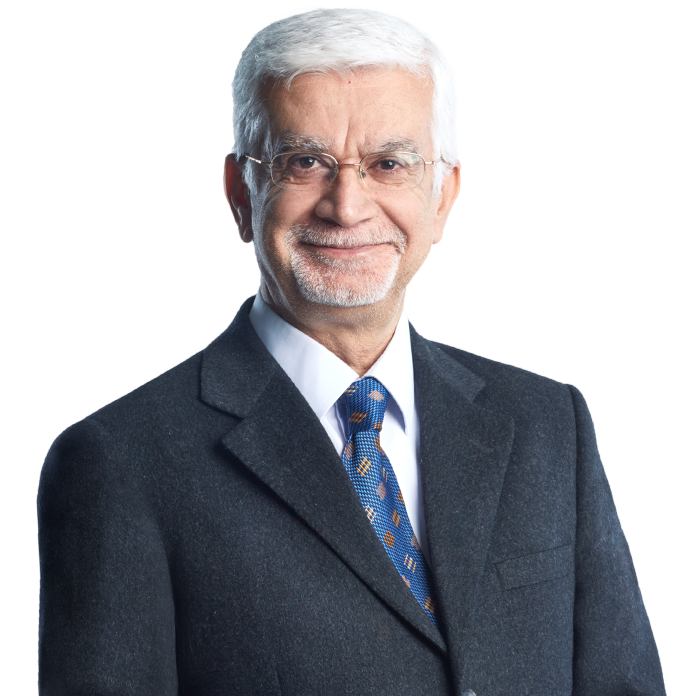In any case, it’s self-evident that in the long run ideas will have an effect on the shape that will be taken by the countries. The communities, which are poor in terms of idea, are almost condemned to be left behind in every sense. Within the confusion of the daily incidents, we sometimes forget about this reality; however, luckily we encounter people and stories that push us towards being busy with ideas. Thge young academician, Volkan Ertit, is a person of this quality. I know of the attempts to preclude him within the academician life, but Ertit is continuing to advance. He is breaking the routine with his work of art in the past two years, and, invites us to deep thoughts. In his work, which had been named after the topic in his article that had been published by the Liberte Publications (2014), he is making fixations and analyses, which should be absolutely taken into consideration.
Ertit explains secularization as; “the relative decrease of the religion, “religious-looking” structures and public beliefs, their prestige in the communal level and their power to influence the community, within a certain timeframe. As it can be understood from his explanation, secularization does not absolutely amount to the complete annihilation of religion or secularization.
According to Ertit, people in the secularized community can still be able to possess a belief and actualize their religious rituals, and maybe there won’t be any drop in the number of people who possess religious belief. Because, secularization is not equal to heathenization, but rather it’s the distancing of religion from being a reference point in daily life. For example, when a person, who fasted before, stops fasting, or, when a person, who was against flirting, starts putting this type of relations in his life, this doesn’t necessarily mean they were compelled to be heathenized. According to Ertit, who emphasizes that religion is being less effective in people’s partner preferences, food and beverage cultures, clothing preference and religion going out of people’s lives completely are two different things, the secularization process is not directly related with an individual’s subjective belief. In the same way, the laicism notion, which states that the government should have equal distances to all belief groups, and the secularization notion, which states that religion had stopped being a single indicative or primary reference point for some segments of the community, should not be used in the place of each other.
According to Ertit’s secularization paradigm, if the urbanization rate has increased in a community, if scientific developments gained enough wideness to penetrate daily life and if the dominant economic model is industrial capitalism that is based on private enterprise, then that community will most probably become secularized.
With the urbanization process, which is the first stage of secularization, the powers of Sunni preachers’ and Alawite progenitors’ in the rural areas decreases, secular groups like lesbians/homosexuals start finding living spaces in the town, and, pre-marital sex and flirting enters people’s lives. According to Ertit, as the people start becoming more mobile and create more tolerance against differences and create private areas for themselves in towns on the contrary to their rural lives, the influence of religion becomes limited.
While Scientific Developments, which is the other leg of secularization, increases rational consciousness level (the rate of explaining natural incidents within cause and effect relation), people became able to explain unknowable parts of the nature and even, if partially, the nature got under the control of people. As modern medicine progressed, some fields, which required religious expressions and rituals before, started to become narrow. As the book states, it’s not a coincidence for people to go to hospitals for curable sicknesses and turn to religion or other de-secular methods for incurable sicknesses.
As for capitalism, which is the third leg of the secularization paradigm, it’s distancing the economic field from religion in a sense. Besides, due to turning women into a “labor force”, it’s causing a change in the traditional family structure, which had been kneaded with religion. The ascent in the life standards following capitalism and the decrease in the shrinking government’s power to impose certain “moral” codes on the community is also causing secularization to speed up.
Ertit states that the paradigm he propounded is neither progressivist nor secularist. The density of worshiping is not included in the center of this paradigm; reaching a community without a religion is not being claimed. This puts forth a comprehensive table related with what secularization is and is not, by giving interesting examples from the daily life while frequently emphasizing that there is no data showing that secularized communities are happier or more peaceful.
Ertit’s fixations tells us that; while secularization has it’s own accord and cannot be designed as applied by a central authority, laicism is a setup. If this setup, as it’s in Turkey, is not done properly and not regarded as the tool of religious freedom and applied that way, then it might pave the way for religious people to be exposed to a violation of rights, alienate them to the system and even turn them against it. As for secularization, it provides a chance for religious people to settle accounts with new challenges and subject their beliefs and values to comments that will include new conditions. Being unable to see it this way and opening war to secularization over the government might pave the way for a political structuring, which is religious-colored authoritarian and even totalitarian, to become evident.




















